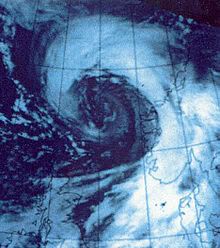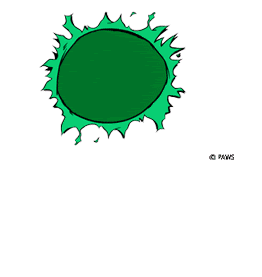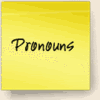The
Thoroughness Challenge is a post consisting of paragraphs that contain spelling and/or grammatical errors. The paragraphs with the errors corrected and highlighted in
red can be found at the end of the post.
Note: The purpose of the Challenge is thoroughness. You're only looking for errors in spelling and/or grammar. Names and places will NOT be misspelled, nor will there by any changes to punctuation or sentence structure. In addition, if there is a word that may have more than one accepted spelling, those also will not be changed.Today's Challenge is on the history of
naming hurricanes, and contains
13 errors.
Good Luck!*******************************************************************************For several hundred years, hurricanes in the West Indies were often named after the particular saint’s day on which the hurricane ocurred. For example "Hurricane San Felipe" struck Puerto Rico on September 13, 1876. Another storm struck Puerto Rico on the same day in 1928, and this storm was named "Hurricane San Felipe the second." Later, lattitude-longitude positions were used. However, experience has shown that using distinctive names in communications is quicker and less subject to error than the cumbersom lattitude- longitude identification methods.
Using womens' names became the practice during World War II, following the use of a women’s name for a storm in the 1941 novel "Storm," by George R. Stewart. In 1951 the United States adopted a confusing plan to name storms by a phonectic alphebet (Able, Baker, Charlie), and in 1953 the nation’s weather services returned to using female names. The practice of using female names exclusively ended in 1978 when names from both genders were used to designate storms in the eastern Pacific. A year later, male and female names were included in lists for the Atlantic and Golf of Mexico. The name lists, which have been agreed upon at international meetings of the World Meteorlogical Organzation, have a French, Spanish, Dutch, and English flavor because hurricanes effect other nations and are tracked by the public and weather services of many countries.
The Tropical Prediction Centre in Miami, FL keeps a constent watch on oceanic storm-breading grounds. Once a system with counterclockwise circulation and wind speeds of 39 mph or greater is identfied, the Center gives the storm a name from the list for the current year. The letters Q, U, X, Y, and Z are not included because of the scarsity of names beginning with those letters. Names associated with storms that have caused signifcant death and/or damage are usually retired from the list.

Now, let's see how thorough you are!*******************************************************************************For several hundred years, hurricanes in the West Indies were often named after the particular saint’s day on which the hurricane
occurred. For example "Hurricane San Felipe" struck
Puerto Rico on 13 September 1876. Another storm struck Puerto Rico on the same day in 1928, and this storm was named "Hurricane San Felipe the second." Later,
latitude-longitude positions were used. However, experience has shown that using distinctive names in communications is quicker and less subject to error than the
cumbersome latitude-longitude identification methods.
Using
women’s names became the practice during World War II, following the use of a
woman’s name for a storm in the 1941 novel "Storm," by George R. Stewart. In 1951 the United States adopted a confusing plan to name storms by a
phonetic alphabet (Able, Baker, Charlie), and in 1953 the nation’s weather services returned to using female names. The practice of using female names exclusively ended in 1978 when names from both genders were used to designate storms in the eastern Pacific. A year later, male and female names were included in lists for the Atlantic and
Gulf of Mexico. The name lists, which have been agreed upon at international meetings of the World
Meteorological Organization, have a French, Spanish, Dutch, and English flavor because hurricanes
affect other nations and are tracked by the public and weather services of many countries.
The Tropical Prediction
Center in Miami, FL keeps a
constant watch on oceanic storm-
breeding grounds. Once a system with counterclockwise circulation and wind speeds of 39 mph or greater is
identified, the Center gives the storm a name from the list for the current year. The letters Q, U, X, Y, and Z are not included because of the
scarcity of names beginning with those letters. Names associated with storms that have caused
significant death and/or damage are usually retired from the list.
 Source: National Hurricane Center
Source: National Hurricane Center


























































































